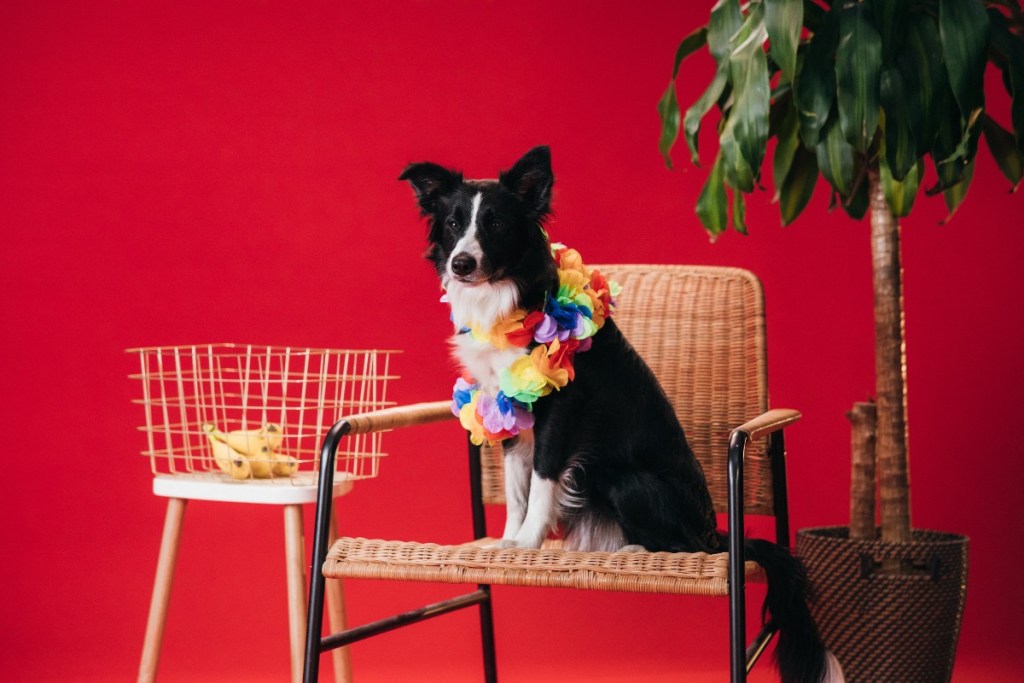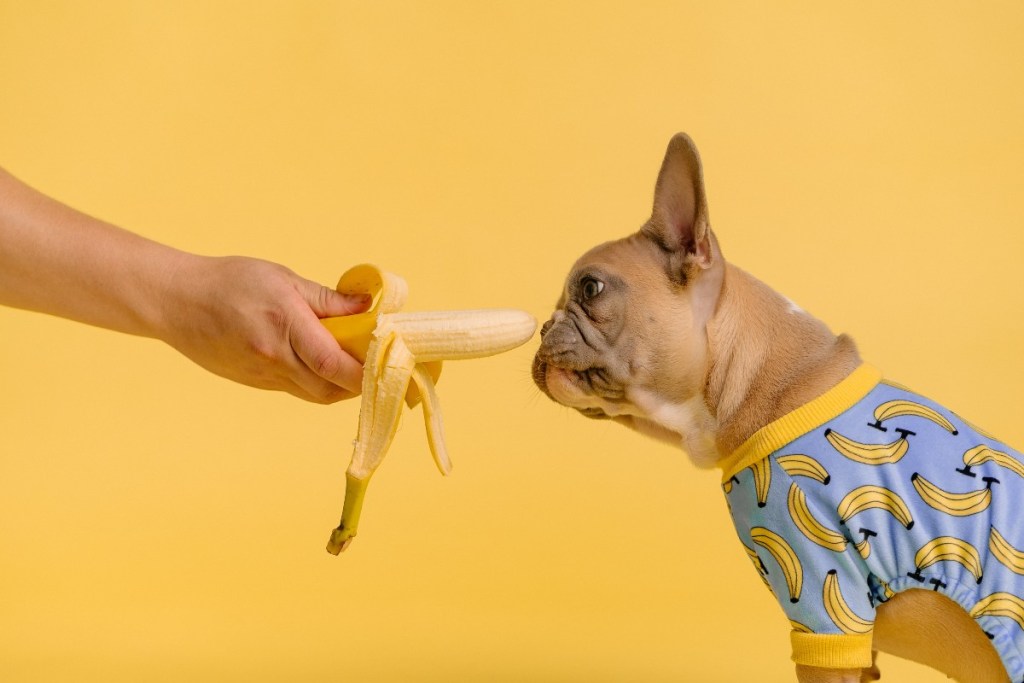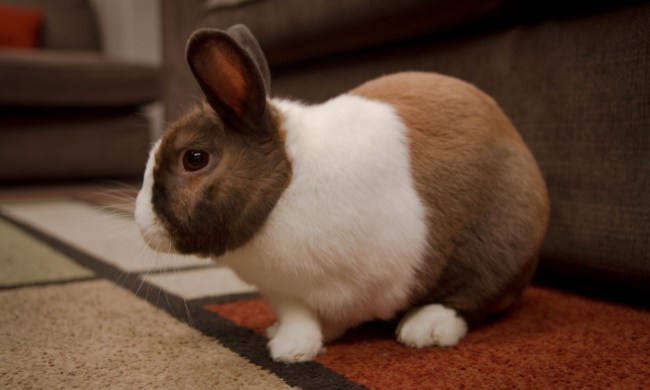Bananas are a favorite fruit of many humans. They’re sweet and versatile, and easy to eat on the go or put in smoothies, pancakes, or cereals. Sometimes, it’s tempting to give some of our favorite foods to our puppies.
It can be a way to bond and please them, and treats can help them learn commands and tricks. Plus, those big, hopeful, brown puppy-dog eyes can be too cute to resist. At the same time, we want our growing dogs to be strong and healthy. Some human foods, like candy and grapes, are toxic to dogs. It’s always good to do your research before introducing new foods to a pet, such as by asking your vet, “Can puppies eat bananas?” In this case, we did some digging for you.

Can puppies eat bananas?
If your dog ate some banana off the floor or you couldn’t help but give them a piece of yours, don’t worry. Vets consider bananas a safe human food for puppies, so it’s OK if your pet has a slice or two. In fact, some experts say they are a good alternative to other high-fat or high-sodium dog treats you may be using for training.
Just be sure you peel the banana, as that part of the fruit can cause a stomach ache.
Are there any health benefits to feeding your puppy bananas?
Bananas boast high levels of B6, potassium, fiber, and vitamin C. For humans, this low-calorie food can help boost your immune system, heart health, and digestive tract functioning. You want your puppy to be as healthy as you are, so you may be wondering if feeding them bananas may be nutritious for them too.
Ultimately, an AAFCO-approved dog food is going to give your pet everything they need to thrive. Bananas are more of a treat, but some vets say the potassium may aid in heart and kidney health, and fiber can keep the digestive tract running smoothly.

What are the risks of feeding your dog bananas?
Even if you absolutely love bananas, they may wind up not being the best treat for your dog. Some puppies experience an upset stomach after eating bananas. Vomiting and diarrhea are two telltale signs of gastrointestinal (GI) upset. If you notice them, it’s best to stop feeding your puppy bananas.
Bananas are also high in sugar, so they’re best left as an occasional treat. If your puppy has diabetes or is overweight, refrain from feeding her bananas until you speak to a vet first.
Occasionally, puppies get put on special diets for weight-related issues. Extra treats like bananas may interfere with these diets, so it’s best to monitor your puppy’s appetite and talk with his doctor.
Dried bananas can be even higher in sugar and are often included in trail mixes with foods like chocolate and raisins, which are toxic to dogs. Feeding a regular, fresh banana is best, but be sure to check the mix if you’re going to slip your pup a dried one. You may want to eat a chocolate-covered banana sometimes, but consider that a treat just for you.
How much banana can a puppy eat?
Though bananas are tasty and may contain some health benefits, moderation is always key when it comes to doggie diets.
How much of a banana you can give to your puppy will vary based on their weight, health, and preferences. Generally speaking, experts suggest following the 90/10 rule. That is, it’s best for 90% of your puppy’s daily calories to come from her traditional dog food, and the other 10% can come from treats, like bananas. Avoid giving a large puppy more than half of a banana per day, and stick to a couple of tiny slices for smaller puppies.
Regardless of your dog’s size, you’ll want to start gradually and with a small bit of banana. Wait 24 hours to ensure it agrees with your pup, and then consider giving more.
Final thoughts on bananas
Bananas are a popular fruit for humans, and puppies can indulge in them too from time to time. In fact, they may boast some nutritional benefits, like extra fiber that can help keep your puppy regular. That said, your puppy’s standard food is the most essential part of their diet and really all they need. Make sure any treats, including bananas, don’t leave them too full to chow down on their kibble. About 90% of your pup’s daily calories should come from his regular commercial or homemade food, so limit your large puppy to no more than half of a banana per day and your small dog to a few pieces. If you notice your dog has a stomach ache after eating bananas, it’s best not to give them more and to consult a vet.



